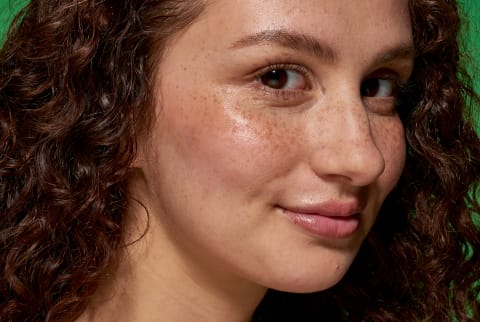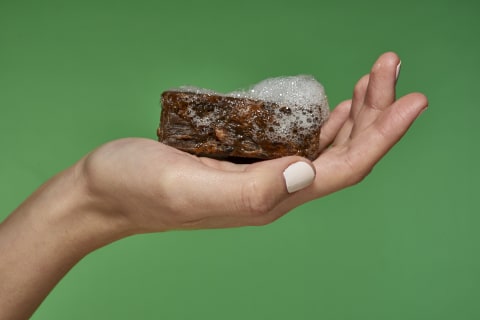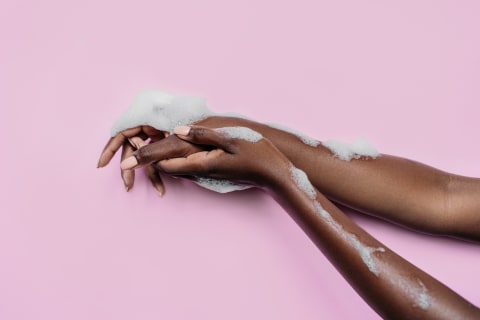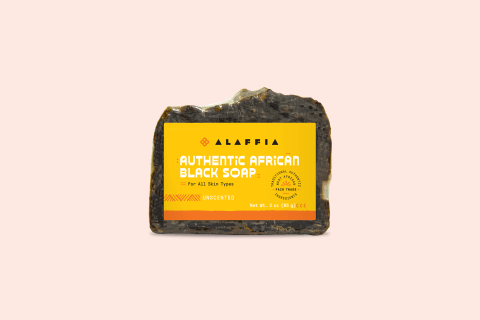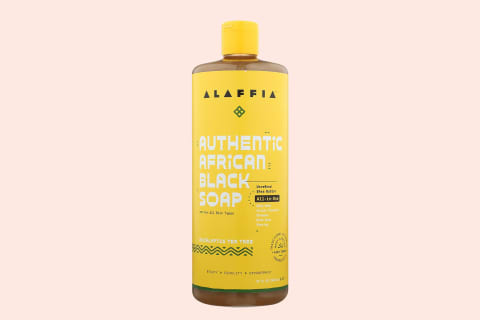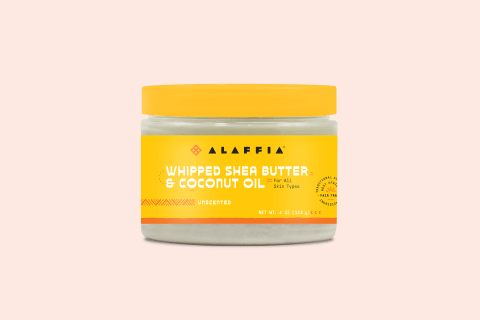The ingredients in African black soap will vary between regions. For Alaffia’s fair-trade body washes and soap bars from West Africa, saponification follows a Togolese recipe that the brand’s founder, Olowo-n’djo Tchala, grew up using. Locally harvested shea butter and Orangutan-safe West African palm oil—the fatty acids—are mixed with a potassium-rich salt called potash—the base—then cooked for six hours. The “black” in its name refers to the resulting color, although it’s naturally more of a brownish color (a soap that’s actually black may have other ingredients added to it, like charcoal). The last step is curing soap in the sun for three weeks. Once it’s found a home in your shower, African black soap is easy to use as a daily balancing and moisturizing face cleanser, body wash, shaving cream, hand wash, and more. The hardest part will be picking your favorite scent!

